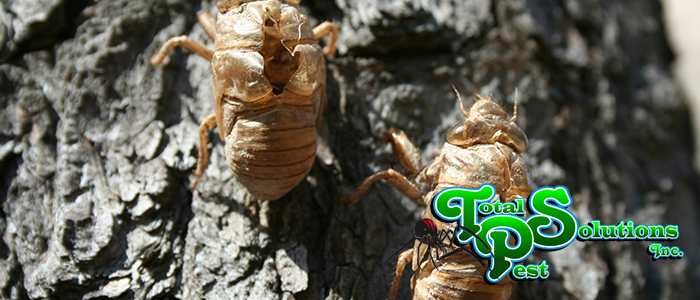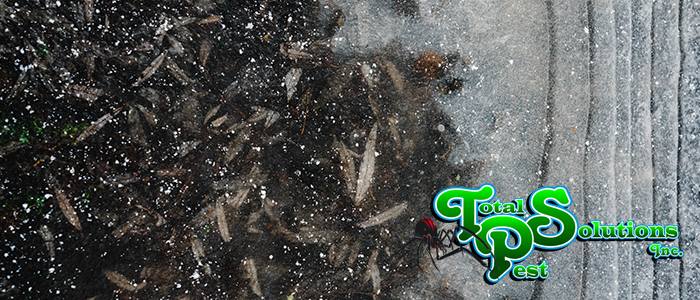The Importance of Protecting Your Patients: Why Hospital Pest Control is a Must-have
Hospitals are some of the most sensitive and high-risk environments where pest control is an absolute must-have. Considering that hospitals are places where patients go to recover from illnesses, surgeries and various medical conditions, it’s crucial that these facilities maintain high levels of hygiene and safety to avoid further medical complications. However, this can be easier said than done, especially when dealing with pests. Total Pest Solutions understands the importance of zero-tolerance policies when it comes to pests in healthcare facilities. So, begin your hospital pest control routine today.
In this blog, we’ll highlight the importance of regular pest control services in hospitals, from bed bugs and mosquitoes to rodents and cockroaches.
Identifying Pest Threats in Hospitals
Pest infestation in hospitals is a significant problem, as it poses severe health risks to patients, staff and visitors. Effective pest control strategies shouldn’t be a choice but rather a necessity. With so many people passing in and out of hospitals, the risk of transferring disease-carrying pests is high. Among the most common pests found in hospitals include:
Rodents and their droppings: Rodents are a nuisance in hospitals as they can chew through almost anything, including electrical wiring and hospital equipment.
Bed Bugs: These pests may thrive in even the cleanest rooms and are known to cause allergic reactions, skin irritation, and psychological stress.
Mosquitoes and Flies: These pests feed on patients when given the chance; mosquitoes being known carriers of deadly diseases like dengue fever, Zika virus, and malaria.
Cockroaches: They thrive in kitchens and make mealtime unpleasant. Cockroaches spread disease-causing bacteria and allergens leading to respiratory issues in some people.
Impact of Pest Infestation on Hospital Reputation
Pest infestations are detrimental to any business’s reputation, and hospitals are not exempt. News of a pest infestation can spread like wildfire on social media, leading to reputational damage and loss of trust from patients and staff. The last thing a hospital needs is bed bugs discovered in a patient’s room. The hospital can quickly become labeled as ‘dirty’ or ‘unhygienic’ in the community’s eyes. This is terrible news for any hospital marketing department, as the trust and confidence of the public are vital for a hospital’s success.
Dangers of Pests in Hospitals
The presence of pests in hospitals is more than just a nuisance; it poses severe health risks. Pests carry diseases and bacteria that can lead to epidemics, thereby compromising patients’ and staff’s health.
It’s important to note that these dangers do not present themselves immediately, making it essential to exercise preventative measures through our pest control services.
Spread of disease – Pests carry bacteria and diseases that can be easily transmitted to patients, leading to further complications.
Allergies – Some pests, like cockroaches, produce allergens that trigger severe respiratory problems.
Disruption of Hospital Activities – Pests in the kitchen areas and staff breakrooms can lead to food contamination and unsanitary conditions leading to the hospital’s temporary closure.
Damage to facilities – Leaving an infestation unaddressed can lead to structural damage to equipment, ceilings and walls, and furniture.
Preventative Measures
Hospitals are complex environments where pest control goes beyond straightforward extermination. Total Pest Solutions professionals develop customized plans that focus on preventative strategies that deter pests and avoid any future infestations. Some of the natural pest-control strategies that Total Pest Solutions professionals will introduce include:
- Reconfiguration of Landscaping areas.
- Sealing of gaps and holes where pests can enter.
- Regular waste disposal.
- Use of pheromone traps.
- Cleaning and disinfecting at regular intervals.
- Use of eco-friendly pest control products.
Conclusion for Hospital Pest Control
Pest control in hospitals is not a luxury, it’s a necessity. Hospitals face significant financial and reputational risks when pests invade their premises. A well-thought-out integrated pest management (IPM) pest control program is a prudent investment that will reduce the risk of disease transmission and avert structural damages to equipment and walls. Be proactive; Total Pest Solutions can help keep your hospital’s reputation clean and safe.
continue reading
Related Posts
Davenport’s Pine Beetle Threats: Protecting Trees in Dormant Season As
Winter Roach Hotspots in Lakeland: Kitchen & Bathroom Prevention As
Davenport’s Spider Invasion: Managing Winter Web Builders As the temperature







